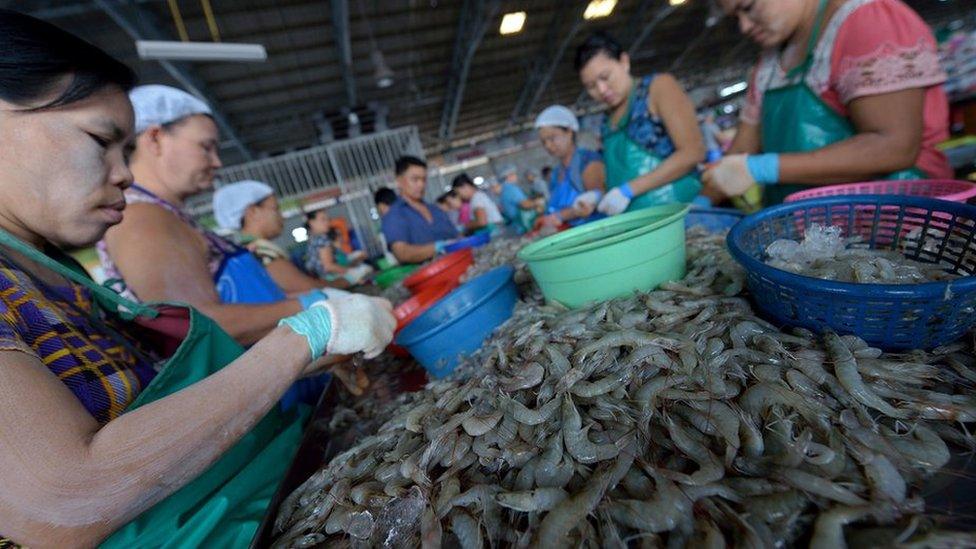Calls mount for boycott of Thai shrimp imports after slave labour report
- Published

US politicians and human rights groups have called for a boycott of fish and shrimp products linked to slave labour in Thailand following a report from the Associated Press.
The report , externalfound that shrimp producers in Thailand forced labourers to work 16-hour days for little or no pay.
The prawns are found in products sold in the US, Europe and Asia.
AP said it had tracked shrimp produced under these conditions through to products sold by major retailers.
The news agency reported that many workers could end up being tricked or sold into factories where they were forced to work 16-hour days with no time off and little or no pay.
Some workers have been trapped for years at a time and even locked inside factories.
'Wake-up call'
Chris Smith, a Republican Congressman from New Jersey and a member of the House foreign relations committee, said: "All of us may find ourselves eating a slave-made product without knowing it, but once we know it, we all have a moral obligation, I believe, to make a personal decision to boycott it."
Thai Union - one of the world's leading shrimp producer and one of the producers named in the scandal - admitted it was unaware of where all of its shrimp came from.
The company, which owns brands including John West, said it would change its employment practices from 1 January.
Thai Union said that AP's report was a "wake-up call" to both the company and the wider industry.
Its chief executive, Thiraphong Chansiri, said the use of internal labour was "a positive step towards our goal of ridding the Thai seafood sector of illegal labour practices".

Thai Union chief executive Thiraphong Chansiri
'Determined'
In July, Greenpeace called for a boycott of Thai Union after another AP report revealed abuses at Indonesian processing plants used by the company.
The Thai embassy in Washington said it was investigating the allegations.
The embassy said: "We are determined to ensure that the country's seafood supply chain is free of human trafficking and forced labour."
Last month global food giant Nestlé said it had discovered slave labour was being used in the processing of fish sourced from Thailand and set out a plan to resolve the issue.
According to Nestlé's study, nearly all US and European companies that purchase fish from Thailand face the same risk of supporting this forced labour.
Seafood exports generate $7bn (£4.6bn) a year for Thailand.
- Published29 October 2015
